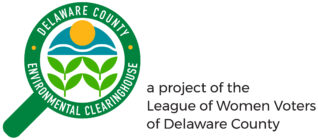2026 PA Climate Action Plan Presented in Chester
Only about 20 people came out for The PA Department of Environmental Protection’s workshop on its 2026-2028 Climate Action Plan on March 20 to help the Pennsylvania Department of Environmental Protection develop the plan.
The purpose of the workshop was to ask local residents what they would like to see in eight categories or “sectors” for the next three-year plan – built environment (buildings); transportation; industrial; fuel and gas systems; power generation; waste; land use and agriculture, and cross-cutting technology, such as nuclear and hydrogen.
The presenters explained that as climate change accelerates, Pennsylvania is experiencing more days of extreme weather, heat waves, extreme precipitation, flooding, landslides and sinkholes and escalating air pollution.
The presentation in Chester was one of eight that the DEP planners are making across the state. Each area is different. Mountainous regions are experiencing more snow; river valleys more flooding, and urban areas more air pollution from various sources, they explained.
They presented slides listing what government, business and individuals can do to mitigate the effects of climate change in each sector.
For example, in transportation, the use of public transit and more electric vehicles and biofuels could help reduce air pollution.
In fuel and gas systems, the planners listed reducing methane emissions as a major goal. Gov. Josh Shapiro has obtained federal funds and launched a training program to cap 350,000 uncapped gas and oil wells leaking methane throughout the state.
The proposed plan also discusses carbon capture, expanded use of hydrogen fuels and nuclear energy. One member of the audience asked the planners to commit to promoting only solar and wind energy in the new plan. He also noted that researchers have not achieved carbon capture at any useful scale.
Another member of the audience said the community emphatically did not want a liquid natural gas export terminal or any other polluting industry anywhere along the Chester-Marcus Hook industrial corridor.
The planners said they are required by state law to produce a new climate action plan every three years, but they conceded that they cannot do much to enact the plan beyond making suggestions to the legislature, governor and other state agencies.
They have been successful under past plans in creating programs to help local communities, such as free energy audits of homes in low-income areas, developing environmental justice initiatives, and implementing the RISE PA program.
RISE PA is a $396 million statewide industrial decarbonization grant program funded through the U.S. Environmental Protection Agency under the Inflation Reduction Act of 2022. The program offers grants for small-, medium-, and large-scale decarbonization projects at industrial facilities to reduce greenhouse gas (GHG) and other emissions.
They also acknowledged that the Trump Administration’s hostility to any climate change initiatives may endanger any progress already made or planned in the future.
After the presentation, participants were asked to put dots on posters of each of the eight vectors that were most important to them, either in a positive or negative effect, and to use Post-it notes to make additional comments. The planners recorded the audience’s comments and will incorporate them with comments from the other seven presentations when they formulate the final plan by the end of the year. ~ Jodine mayberry for the Clearinghouse

